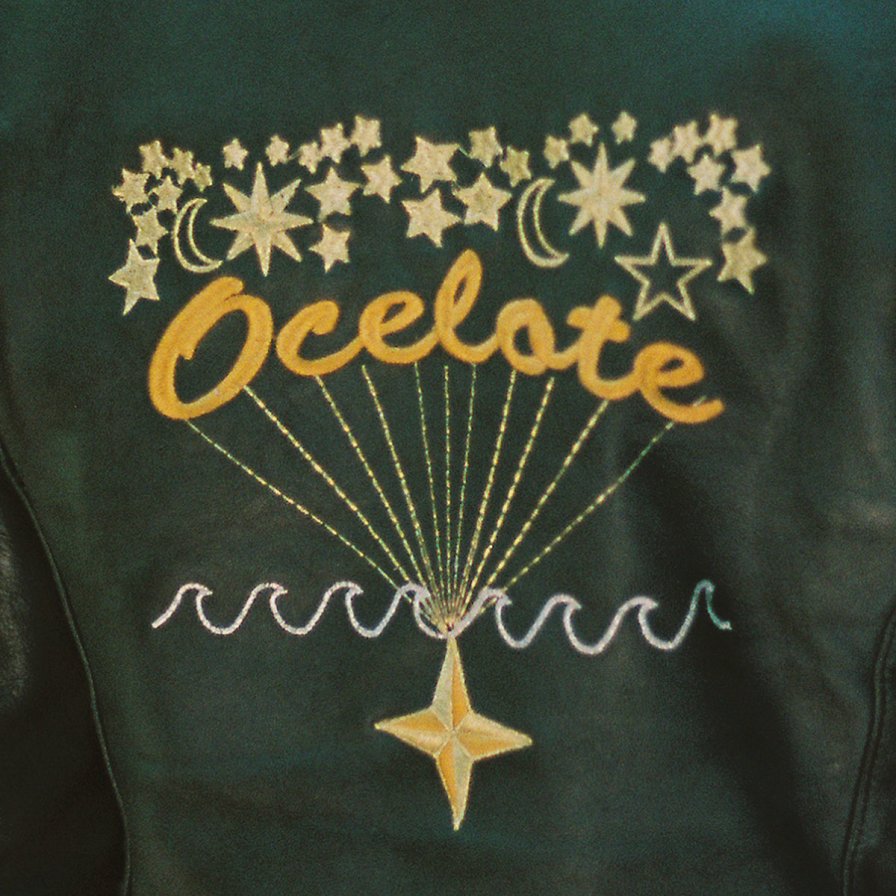For each year's first three quarters, we celebrate by sharing a list of our favorite music releases. Unlike our year-end lists, these quarter features are casually compiled, with an aim to spotlight the underdogs and the lesser-heard among the more popular picks. More from this series
TMT’s Musical Innovation Summit, now in its 14th year, is the oldest meeting of its kind in the industry. Like last quarter’s summit, roughly 10 music professionals from TMT gathered in New York to discuss the latest musical breakthroughs and make predictions on which releases will spark future awe-inspiring innovations.
To help make the predictions, we interviewed 45 random fans, 30 venture capitalists, and a handful of media who cover the music industry across the country to get their collective thoughts on what’s imminent. That list is then honed by eliminating long-shot candidates, followed by a double-elimination round to get rid of shitty artists. Nominees are thoroughly vetted, and the groups eliminate candidates throughout the process.
Today, we are proud to present the results: the BEST 26 releases of the last three months (with a shortlist at the end). We predict that these releases will change music forever.
SOPHIE
OIL OF EVERY PEARL’S UN-INSIDES
[Future Classic]

Now’s raw doubt flanges in this memory’s mercury, and we’re back in the basement dark, floor paved with silver marbles. We will shine a light on one, outline the floor with reflecting. I ask are you sure of this? and you say no, never not of any thing. You squeeze your foreign-feeling shoulder, slim quick doubt. Then you hold a marble up to your eye, unclipped cuticles before corneas, a silver pearl. It’s okay. Flashlight on. We gape. There is no neat sequence. No light is set Surface contorts seeing. The shining is bent in coils. There is no straight path, just what we can move into in this whole new world. Roll the flashlight, and it’s a world warping, brilliance refracted, reflections re-membering. The world we built in the dark teaches us how being between might be. Our un-insides, SOPHIE’s sound, teaches us that brilliance doesn’t diminish its self, that light and self and is what we call it. And you say call me Vivian. Becoming who we’re becoming, “no matter where I go, you’ll be here in my heart.”
Playboi Carti
Die Lit
[Interscope/AWGE]

The arrival of Playboi Carti’s debut album proper, following last year’s crucial self-titled mixtape, could seem like a mere victory lap, an easy cop-out that plays up to the well-established framework of overstuffed rap albums in the streaming age. What a pleasure, then, that Die Lit implodes that logic. The heady balance of mood pieces and out-and-out anthems that characterized Playboi Carti is further refined here, but even without that baggage, Die Lit is a success on its own terms, a flickering visage that compounds Carti’s most enticing impulses — barely-there vocals, Reichian repetition, knotty Pi’erre Bourne beats — with all the best facets of the album form. And if Carti is only incidental on the mic, the tracks left in his wake are anything but. Herein lies a set of real Ohrwürmer, the inner soundtrack to your day, long after the album subsides. The cloud bursts forth; lightning really does strike twice.
DJ Healer / Prime Minister of Doom
Nothing 2 Loose / Mudshadow Propaganda
[All Possible Worlds]

On DJ Metatron’s 2 The Sky, the anonymous artist threaded a Jake Gyllenhaal interview through intricate waves of house music that helped give rise to this enigmatic and highly gifted producer. This year, his efforts have come twofold, with a double release under two new monikers that plot the same channels of intricacy but through two very different means. In place of the Donnie Darko reflection that deepens the narrative of 2 The Sky is a 2002 Whitney Houston interview with Diane Sawyer, where the troubled singer discusses her drug problems and an unnerving sense of optimism that inevitably collapsed 10 years later. Essentially, the music that accompanies both of these otherwise unrelated samples is the atmospheric gel that binds them together; an actor speaking about his fascination with a perplexing story line, and a generational icon battling with herself, fighting to overcome the very thing that took her life. That disparity lies at the heart of this joint release, which merges two highly distinctive personalities while linking them through religious and personal overtones. Mudshadow Propaganda is perfect in its projection of minimal techno tracks that build on the traits of our secretive producer’s expired alias, The Prince of Denmark, while Nothing 2 Loose is almost confessional in the sincerity that it lays bare. But where both records celebrate the dexterity and imagination of a single producer, they also paint a picture of human existence at its most conflicted, from the carnal and the primitive to the haunted and the divine.
Grouper
Grid of Points
[Kranky]

In seven tracks and less than 30 minutes, Liz Harris sought to take us nowhere. So she stranded us anywhere. Giving up on finding anything instructive or stabilizing in the passing moan of a stray vocal, the odd cluster of muted piano keys, or the occasional sharp gust of static, it became clear that the only place where anything “new” could happen was in a place where nothing old and familiar was left. “Where are we?” started to sound more like “Where aren’t we?” It might have been some heavenly shoreline where the water was the same perfect gunmetal color as the sky, but it might just as likely have been the vacant parking lot of some long-since-demolished Disneyland. It didn’t really matter. Anyplace we chose to stand and look from was just as good (or bad) as another. “Might as well call this the center,” we figured. Gotta start somewhere.
Seth Graham
Gasp
[Orange Milk/Noumenal Loom]

A symphony of perversions and memories that ignites every time you rapid-fire through your Instagram stories. Refried beans left over from the camping trip you took to a closed beta somewhere off the coast of Spy Kids 4D. A million splintered renderings of classical text that you half-scrawled onto the back of your hand before you realized that you were actually just passed out on the keyboard again. Gasp is like a raw feed of how music itself operates in 2018; brief bursts of genius materializing right before us, only to be swept away and digested into something unrecognizably new. The entire sum of human history rubbing elbows with that ASMR video you had to rush to minimize before your roommate could ask you what the fuck you were just watching. A guy as unassuming as Orange Milk label head Seth Graham conjuring up untold universes of possibility from his home in Dayton, OH, his bank of MIDIs a window into our gentle, distraught, and hilarious world.
Klein
cc
[Self-Released]

“Oh my god! Who’s actually going to listen to this?” asks Klein, lounging with friends, reflecting on her last EP, Tommy and a still-emerging network of diasporic black art and sound. A year and new EP later, cc sees Klein more comfortable in the discomfort, pushing further with her collages of confrontational intimacy. “You have to squint” as the voices build and spiral, like an endless loop of out-of-office replies, a pitch-bent dawn chorus, singing to each other, but listening too. Klein made us think: about blackness, about opacity, about femininity and Disney princesses, all at once. Feelings too, and a lack of language to convey them; anxiety, elation, mania, but less medical, sometimes an incantation, sometimes an exorcism. In cc, Klein created a space of unique and disarming affect and mood: a deeper, darker stage in the process of “me being my own therapist,” the sound of someone finding a plurality of voices, of listening to yourself.
Beach House
7
[Sub Pop]

Attempting to describe what dreams are seems like a task both impossible and pretentious. But, as it floats like a wandering mind, drifting from thought to thought with each track, 7 certainly feels like a dream. Alex Scally plays guitar, but it sounds like an unfamiliar squall from another universe. Victoria Legrand sings, but it comes out in French. Look at the clock, you’ll be unable to tell how much time has passed. You know, dream stuff. For a genre that gets its name from something as complex as the random images our brains send to us while we sleep, “dream pop” music can often be very formulaic. That’s why, seven albums into their career, it’s remarkable that Beach House have found a way to not only completely refresh their sound, but make perhaps their best album yet. Awash in a chaotic darkness that’s been lingering in different forms throughout their entire discography, 7 hurtles towards oblivion: beautiful, glorious, infinite.
Eartheater
Irisiri
[PAN]

I keep losing track of Irisiri; it keeps slipping away from me. This isn’t meant as the insult it might scan as. An elegiac spin on the cyber-cyborg-meat-machine kick that everything relevant is twirling toward, this series of sad little processed ditties and twisted car jams charts a swerve back-and-forth between evasiveness and directness. Its unnerving stuff, giving the impression of solidity while remaining impossible to hold. Flirting with hip-hop and electro-acoustic, bedroom pop and sexed-up sopping wet plastic, it keeps moving out of view, even as I keep returning to it. Listening to the album is like chasing an object out of reach, an object I desire without knowning, a body I want without seeing. Also, C.L.I.T. fucking slaps.
THE HIRS COLLECTIVE
FRIENDS. LOVERS. FAVORITES.
[SRA/Get Better]

For a few decades now, raw musical aggression has been underpinned with a lot of unintelligible vocal sentiment. Just steam on in with howling, power riffs and punishing beats please. But what’s that on the edge of the blast radius, dashing in headlong through the smoke? Clear sentiments that uplift, testify, and provide some sharp kicks in heteronormativity’s floppy old dick? Yes please! Even with its closing remix section, the album’s corroded (and collaborative) essence remains triumphantly tight. The perfect way Lilium Kobayashi’s quick stomping techno pop take on “Murdered by a Woman” flits to “Wake Up Tomorrow” when this album is on repeat further dispels any sort of tacked-on/bonus trax superfluousness. The cultural constant of immediate, frothing punk rage is obviously not going anywhere. It’s essential to have an album, in fuck-this-shit 2018, where that rage is specifically righteous, even with its eternally itinerant self-laceration (i.e., humanity).
Delroy Edwards
Rio Grande
[L.A. Club Resource]

Delroy Edwards has made the funk (in its many different strains) the connective tissue of his intrepid, joyful, and often perplexing work. It’s an approach never as explicit as in his latest LP, Rio Grande. That might indeed be its greatest success. In Rio Grande, keeping the raw, hissy, determinedly idiosyncratic credentials that first introduced him to the world, Edwards lets the funk take center stage; sometimes riding grimy techno beats, other times pushing beyond the ridiculous-by-design minimalism of the grooves. The goal is simple: to provide his audience with interesting jams to dance to. Edwards takes pride in the anonymous efficiency of that pretense, as the name of his label L.A. Club Resource indicates. He is happy to be the reliable supplier of a service, the invisible demiurge leading patrons to delirium; slipping in some eccentric turns here and there for the kick of it, to the enjoyment of all but mostly because… why the hell not?. And, let there be no doubt, Rio Grande is the most effective toolkit he has yet assembled in pursuit of that goal.
emamouse X yeongrak
mouth mouse maus
[Quantum Natives]

Hey, not to bring this up here, but borders, am I right? Why do we even have these invisible lines dividing my side from yours? We can get so much more done without them, not to mention the added benefit of not having to split up families in real life as they cross the imaginary demarcations. Who on earth has the chutzpah to enact stupid shit like that? Not emamouse — no way. No, emamouse had the opposite in mind as she commented from her Tokyo base of ops, “What’s this thing keeping me out of New Zealand? An ocean? Screw that!” And thus, the BORDER between Japan and New Zealand was erased forever — whether through the magic of the internet or the ocean suddenly turning into a jello trampoline is anyone’s guess. But emamouse was no longer separated from NZ sound slinger/cartoon centipede yeongrak, and together, through the magic of Quantum Natives, mouth mouse maus was born, a sticky, gooey, sugary, epilepsy-inducing strobe blast of video-game grit and played-with-too-much pink slime from a plastic egg. Cookcook, in her review, inferred that utopias can emerge from collectivity, highlighting the compatibility of these two artists. I think what she meant was “Fruitopia,” which someone obviously spilled all over the mouth mouse maus backup hard drive. Remember Fruitopia? That was Coca-Cola’s own attempt to eradicate borders, except they were the borders between taste and… OK, between them and your money.
Félicia Atkinson
Coyotes
[Geographic North]

I once went to New Mexico but mostly stayed inside. Reasons why. Félicia Atkinson’s Coyotes, inspired by her own trip to New Mexico, maps a journey I may have taken, among other wonders. The crafted narrative and its exploratory form gestures toward an experiential unknown. Her travel log collages echoes, maps, receipts, dried leaves, sand stuck in the crevices of shoes, plaques, diary entries, signposts, mythology, spirituality, and the facts and facets of the land’s native and colonial histories into a total atmosphere, something approaching a direct translation of a lingering impression. It’s so effective and affecting, because the whole is actually a scrap: “a slip of paper, something/tiny & torn off/lifted by the wind” writes poet Christian Hawkey in Citizen Of. Atkinson lineates her memories into similarly moving verses.
Pusha T
Daytona
[G.O.O.D. Music]

DAYTONA by Pusha T is hard work. It’s this blurb being written at 5:20 AM on the 7-train to “the office” a day after having led 46 tweens on a non-stop four-day Boston field trip. It’s teaching about heterosexism and female empowerment, leading sixth grade field day, and handling logistics for eighth grade graduation in a single day. It’s your body feeling like a crash-test dummy on a Wednesday, having left in the early, early morning, putting in 12 hours of sweating gallons for money, and arriving home at 8:30 PM. It’s wearing Terminator shades on 125th Street talking Spanish to people you never met. It’s the endurance of confidence while facing every fear you’ve experienced — focused — diving straight into the freezing water. DAYTONA proves Pusha T and Kanye are relentless professionals that continue to transcend literary and sonic aesthetics in space and time. We need role models like these, forever.
DJ Koze
Knock Knock
[Pampa]

Many publications have referred to Stefan Kozalla as a “trickster” or a “prankster.” While there are freckles of truth on the face of that assessment, much of his affability comes from his most mistaken quality: his earnestness. It’s what makes him such a delightful musicmaker. Being earnest, of course, is the perfect foil to the kind of negativist universalism that plagues the psychedelics/mindfulness landscape in which DJ Koze so often finds himself (and, also, finds himself). Koze’s House is perfect (see: “Pick Up”) and his plunder-pop turns weird into sublime and vice versa (see: the wails incorporated into “Scratch That”), but it’s his unpresuming and gracious approach to influences, samples, and collaborations that push this record into extraordinary territory. It’s not alien; it’s absolutely Earthly, and it reflects so well the modest subject that is Koze. After all, Koze never changes, except in his affections.
Elysia Crampton
Elysia Crampton
[Break World]

Elysia Crampton opens in media res, with a nativity. And then it revs up, restlessly — its machinic gears grind like plant medicine visions; water flows and burbles; disharmonic chords take us in unanticipatable directions. And through it all, the oscollo, the feline guardian of people outside gender binaries, oscillates wildly. Elysia Crampton’s maximalist approach takes it beyond the strings and cackles of 2016’s Demon City, yet Golgotha remains always present. Standout track “Moscow (Mariposa Voladora)” was inspired by Ofelia, a Bolivian mariposa (“femme revolutionary”), and it judders roughly, darkly. Crampton’s Aymara and trans identity are her displaced subjects, particularly in light of the gestural movement between her origins in Bolivia and her current home in the US. But this is not any straightforward folk music revival — rather, it’s a deconstruction that reconstructs. The difficulties and contradictions of critical theory, in particular writers such as José Muñoz and his exploration of queer brown-ness, are braided into the work. The first written reference to queers as mariposillas (“little butterflies”) is from Pedro Cieza de León, in the 16th century, in which he compares “sodomites,” subject to punishment by burning at the stake, to moths drawn to the flame. The suffering of our ancestors can’t be recuperated, but through art, we may yet dance grotesquely but triumphantly on the pyre.
The Caretaker
Everywhere at the end of time - Stage 4
[History Always Favours The Winners]

The late hauntologist Mark Fisher once cruelly noted that the OED lists one of the earliest meanings of the word “haunt” as “to provide with a home, house.” And now that we live in a world that has lost the very possibility of loss, we have also lost the one who can lose, cohabiting with oneself in the present’s presence. Ghosts no longer have a home to haunt in any case, and their yearning and lingering voices are consigned to a past that can never pass away. Although it is haunting and horrifying to behold Everywhere at the end of time’s fourth installment pass from memories to their source — what Kirby calls “the post-awareness stage” — perhaps we must be grateful that someone can forget (for (us)). For, the source of memory must remain, even after all memory has been stripped away from it, even though this source can never be aware of itself. Yet, this source is not, strictly speaking, an identity. What it may be I do not know, but The Caretaker allows you to hear, what, behind those eyes, devoid of any recognition of life; we hope, we plead to be someone who remembers us, yet the only bliss, as transient as it is empty, is the wry smile that, for an instant, says, “Do not save me.”
Lucrecia Dalt
Anticlines
[RVNG Intl.]

OK, Hoag. You wake up in 1925, in a different place but with the same objects. Lucrecia Dalt’s Anticlines is playing on the victrola. She sings, “Skinless others/ Oils on waters,” and you realize you’re in the same room as the killer. The only other person in the room is dressed exactly like you, and that person’s talking up the other place — the one you believe you are still in — saying, “I think you’d like it there.” Where again? Both places go out of view. Now possibly dreaming, in a time and place before flight, Gein or radio, you wait at a blue-dipped railway platform as trains roll by on their way to Oclupaca and Ortseam. You’re hoping to catch a ride to somewhere similar but elsewhere, more elemental, past the unseen concupiscence between thermosphere and exosphere, out there where you don’t have to wonder, anymore, what the toys do while you’re away.
Tierra Whack
Whack World
[Self-Released]

In the face of incomprehensible excess and stream-gaming nonsense, Tierra Whack — yes, that’s her real name — provides a grotesque yet charming response with the wonderfully weird Whack World. Rather than dragging the tempo or chopping the tracklist, the 22-year-old Philly rapper embraces something like a skip-button aesthetic of preview clips and non-member samples, unceremoniously cutting off her songs as soon as they hit the one-minute mark. With 15 songs in just 15 minutes — an absurdity further heightened by its surreal video — traditional payoffs are just beyond reach, forcing us to sit through a goofy, lighthearted romp of youthful innovation and bizarre genre play that includes everything from slow jams and trap bangers to country parodies and kids pop. It’s delightfully ridiculous and sometimes annoying af, but it arrives with undeniable energy and child-like wonder, bursting out confetti-like from a singular, captivating voice who’s on one of this year’s quickest and most unexpected come-ups. Blink and you’ll miss it. That’s the point.
GAS
Rausch
[Kompakt]

I consumed the hour-long experience of Rausch, blaring through my headphones, as golden hour became twilight and the mosquitoes started biting. Luckily, my timing was great; 2017’s Narkopop, with its penchant for forlorn ruminations, ultimately owed a lot to its namesake: pop music. Now, those hopeful moments of liquid sunlight are far away. Rausch finds GAS staying true to its typically ascetic atmosphere, but any strand of accessible melodicism is replaced by shattering layers of dissonant drone upon drone, Doppler effect-synths, and percussive textures that pierce through it all — shimmering cymbals, palpitating kick-snare rhythms. As each funeral march bleeds into the next, the delirious effects of Rausch take hold. My arms are covered in bites, and temperatures still haven’t dropped below 90. For the superimposed intensity of Rausch, a more fitting listening environment couldn’t be created.
The Body
I Have Fought Against It, But I Can’t Any Longer
[Thrill Jockey]

It’s so much to bear. We’re expected to carry more than our own weight. The pain and suffering of our past traumas, the present crises, the future uncertainties. More and more, any attempts to alleviate the pain, to share the burden, are undermined. All we ever wanted, all untenable. They demand purity (in lieu of that, submission by “privilege”), individuality, personalization, subscription. They won’t cry for us. Everything must be on you and you alone. Time will not notice you are nothing. You are already hatred as an abstract to someone else. The pull of the personal must end. The allure of ontology and self-indulgence must be shattered in the face of those who leer lewdly into its mirror and contort on the floor in false ecstasy. But it is a painful burden. “I lower my guilty-looking eyes. I’m afraid of looking people in the eye.” War is necessary and proper, to shatter illusions. But it’s all so much to bear.
serpentwithfeet
soil
[Tri Angle/Secretly Canadian]

It’s crazy to think that soil is serpentwithfeet’s debut album. The queer, pagan singer, a former choir boy from Baltimore, emerged in 2016 with blisters, a set of mesmerizing slices of new age R&B delving into faith, superstition, and love. His voice and composition live up to the lofty themes; delicate and meandering, serpent recalled the acrobatic opulence of 90s R&B with brooding, industrial production from The Haxan Cloak. The most visionary artists are those who sound like nothing other than themselves and exhibit a gravitational aura that inspires imitation, lust, and disbelief. soil lurches and waltzes, while Josiah Wise, who prefers to go by “serpent,” remains fully exposed in the mix, employing innovative vocal stacks that whisper, conjure, and croon behind him like a choir of restless spirits. Despite the divine quality to serpent’s voice, which is at times shellacked with layers, often battling against static noise and its own quivering vibrato, the subject matter of soil is immediately relatable and quotidian: the navigation of a shifting dating landscape, the sublime essences of individuals, intimacy and grace in heartbreak, the projection of sorrow onto the world. serpent doesn’t want to be “small sad,” but “big, big sad,” to the point that he’s sure his friends are “tired of him talking.” The domesticity infects us all: How can we properly grieve? How can we redeem ourselves? The occult instrumentation falls away to reveal a queer individual who is merely describing their personal desires.
Sarah Davachi
Let Night Come On Bells End The Day
[Recital]

I walked through the streets barefoot, clothed only in a robe. The bells were ringing, playing their ancient song, letting the world know that the night had begun. My feet were bleeding from the cobblestone streets, which is how they found me in the morning, just outside of town in the woods. I didn’t drink that night. The evening swept me up, and some tribal instinct forced me outside in virtually nothing. My neighbors looked and closed their curtain as I kept walking, holding the hand of the force that was dragging me. I remember parts like my head hurting and my eyes watering. I remember spinning in the center of town underneath a street lamp. I don’t remember why I left town and headed toward the woods. I don’t know why I left my house. I remember being woken up by the police and being embarrassed to face to my neighbors. They took me home and put me in bed, because the medic cleared me at the site. I’ve never spoken of it since, and I still clench up when the night comes on and the bells end the day.
Jenny Hval
The Long Sleep EP
[Sacred Bones]

Roping in some of her favorite jazz musicians to explore ideas, Jenny Hval has managed to escape the noose of her recent collaborative concepts and delve within to produce yet another stunning act of imagination. The pure reach and weight of The Long Sleep is extraordinary. Hval moves across emotional ground with certainty and delicacy, capturing the subtlest of feelings. Like a soundtrack to a brilliant short, Hval plays with recurring motifs first presented in the “conventional” “Spells,” but then swerves genre expectations along the way, through the piano-led clap frappe of “The Dreamer Is Everyone in Her Dream” to the blissful title track drone. On “I Want to Tell You Something,” her presence is so powerful, as she attempts to express trance closure through an oblique narrative before realizing simple words are all she needs. Fecund, savage, and irresistible, The Long Sleep demonstrates once again why Hval is so intriguing.
Gemini Sisters
Gemini Sisters
[Psychic Trouble]

How does one describe something so beautiful and uplifting — a beacon of light in a shroud a darkness. I was wallowing deep in the muck and mire, desperate to claw out of it rather than sinking down into it. But that tar pit of sorrow and defeat is thick, and it cares not about your will. But I saw the light and followed it. It led me to two helpful, outstretched hands. Jon Kolodij and Matt Christensen met my palm with a hardy grasp and a hefty pull. And I felt the warmth of Gemini Sisters. The sprawling, uplifting sonic aura of the duo’s debut speaks to energy from whence Kolodij and Christensen are christened: the two having their daughters born on the same day of the same year (and those offspring being Geminis). It shows with the delicacy of their aural attack. It is spiritual, reaching toward the heavens to pluck the constellation and bringing its brightness to our darkest places. Right now, the flesh is weak and the mind wavers. But our essence remains pure and chaste. Thanks to Kolodij and Christensen, I have traded the hastened quicksand for a tether to the sprawling galaxy.
Christina Vantzou
No. 4
[Kranky]

When you’re in a vehicle moving at a slow, constant speed, sometimes you can convince yourself that you aren’t moving at all. No. 4 moves me like that. I know how tired that metaphor is, and if you listen to gentle drones like “At Dawn” and “Remote Polyphony” and think I’m a hack for digging the spatial metaphor up once again to describe slow, deliberate music, I understand. But I feel that uneasy compromise between motion and rest deeply and at every strange, shimmering moment of the album. It’s in the bells of “Percussion in Nonspace,” ringing in a sort of dual presence and absence; in the little arpeggio that creeps up through “Doorway;” in the pitch-affected choral chant that closes out “Sound House.” Whether we interpret track titles as thematic hints or as mere word games, the names of the tracks on No. 4 suggest, along with the music, that Christina Vantzou wants to domesticate and eventually upend and denature space through sound. Usually a device for ordering abstraction, she turns that hackneyed spatial metaphor into one for abstracting order. This record moves at no speed, in no direction, and toward no goal, except maybe to suspend us temporarily in a kind of beauty without dimension, not far from terror.
Kanye West
ye
[G.O.O.D./Def Jam]

Just because an album sparks cathartic conversations doesn’t mean it’s good, and not all good albums invite candid dinner table discussions concerning their mercurial merits. Kanye, however, has just as big of a reputation for arousing furor as he does for leaving listeners speechless. Meanwhile, critics scramble for thoughtful words that won’t get them blacklisted for being associated with that black magic that has been infiltrating every aspect of daily life since Cain murdered Abel, thus birthing division. Calling ye a divisive document at TMT would be an understatement, and attributing its inclusion here to justifying countless hours of collectively unpacking just over 23 minutes of noise would obscure what ye actually contains: disturbing spoken word admonitions about premeditated murder, breathless bars on prescription drug addiction, ironic fantasies about butts of sex scandals, gorgeous gospel keys and beautiful dark twisted harmonies, celebratory reflections on fame and success, spectral arena rock vibes, and staggering room for growth cleared out by fear and love and loyalty. Regardless of our own individual feelings, ye keeps reminding us that this music shit that gets us through each day often requires plunging into dark places and reemerging with our own beacons of light. Believe it or not, I still love it, and like watching a bright-eyed child grow up in a world this dark, I’m terrified and excited for what’s next.
The Shortlist: King Vision Ultra’s Pain of Mind, Shygirl’s Cruel Practice, Oneohtrix Point Never’s Age Of, Ashley Paul’s Lost In Shadows, James Ferraro’s Four Pieces For Mirai, Larry Wish’s How More Can You Need, Jon Hassell’s Listening To Pictures, Rainforest Spiritual Enslavement’s Red Ants Genesis, Parquet Courts’s Wide Awake!, The Carters’ EVERYTHING IS LOVE, Bernice’s Puff LP, Carla Bozulich’s Quieter, Pinkshinyultrablast’s Miserable Miracles, Duppy Gun Productions’s Miro Tape, DRINKS’s Hippo Lite, Valee’s GOOD Job, You Found Me, and Frog Eyes’ Violet Psalms.
More about: Beach House, Christina Vantzou, DELROY EDWARDS, DJ Healer, DJ Koze, Eartheater, Elysia Crampton, emamouse, Félicia Atkinson, Gas, Gemini Sisters, Grouper, Jenny Hval, Kanye West, Klein, Lucrecia Dalt, Playboi Carti, Pusha T, Sarah Davachi, serpentwithfeet, Seth Graham, SOPHIE, The Body, The Caretaker, THE HIRS COLLECTIVE, Tierra Whack, yeongrak
For each year's first three quarters, we celebrate by sharing a list of our favorite music releases. Unlike our year-end lists, these quarter features are casually compiled, with an aim to spotlight the underdogs and the lesser-heard among the more popular picks. More from this series



